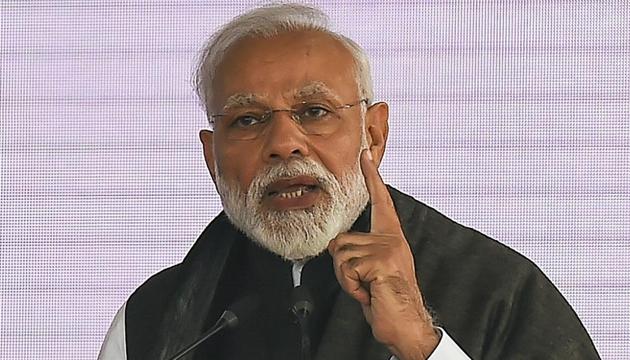The mask is off, the gloves are off—and so is the patience. Prime Minister Narendra Modi, known for his strategic silence, has finally thundered from the heartland of Bihar with a promise no Indian can afford to ignore: the bloodbath in Pahalgam will not go unpunished. Twenty-six innocent tourists—men, women, children—from different corners of India were slaughtered in cold blood in a terror attack that bore the unmistakable fingerprints of Pakistan-sponsored militancy. Modi, without naming names, made it abundantly clear: those who orchestrated this carnage—handlers, backers, abetters—will feel a wrath they “cannot even imagine.” The Prime Minister declared, “India will pursue them to the ends of the earth.” In diplomatic terms, that’s code for retribution—and not the kind that comes through dossiers and platitudes. Behind the scenes, New Delhi wasn’t wasting a second. The Home Minister and External Affairs Minister briefed President Droupadi Murmu and convened a full-scale diplomatic offensive. Envoys of major nations were summoned and briefed. The message was loud, clear, and united: India is done turning the other cheek. Countries like the US, France, Germany, Russia, and Israel, who know a thing or two about dealing with terror, offered their full-throated support to whatever action India deems fit. And let’s be clear: this time, it’s not going to be a routine airstrike followed by smug headlines. This is shaping into a multi-pronged strategy that targets not just the foot soldiers, but the rotten state that nurtures them.

Already, the Modi government has frozen visas, including on humanitarian grounds. The Indus Waters Treaty, a decades-old water-sharing pact brokered by the World Bank, is being suspended. It’s a move with teeth—because, unlike hollow UN resolutions, water flows, or doesn’t. Sindh province, Pakistan’s food basket, could face crippling agricultural losses. For a country teetering on the edge of bankruptcy, this isn’t just pain—it’s haemorrhage. And there’s more. The Pakistani Ambassador and Defence Attachés have been asked to leave. The Indian embassy in Islamabad is being emptied. Diplomacy has officially entered the ice age. The message: if you want to behave like a rogue state, expect to be treated like one. As India flexes its strategic and diplomatic muscle, Islamabad is doing what it does best—flailing in panic. Prime Minister Shehbaz Sharif convened emergency meetings and, in a laughable act of retaliatory theatre, announced Pakistan’s suspension of the 1972 Shimla Agreement. One can almost hear the chuckles in South Block. That agreement, inked by Indira Gandhi and Zulfikar Ali Bhutto post-1971 war, was already hanging by a thread. It got Pakistan back thousands of POWs after its humiliating defeat and the birth of Bangladesh. India has nothing to lose if it’s scrapped. But here’s the real question: is Pok (Pakistan-occupied Kashmir) next? Reclaiming it has long been part of the BJP-led NDA’s stated vision. With global sentiment on India’s side, Pakistan’s economy in tatters, and its military stretched thin with internal unrest and Taliban spillover, there may not be a better moment. What better way to settle history than to return home what belongs to India? Of course, the political usual suspects back home have started moaning. The professional sceptics, who find more fault with Modi than with Pakistan, whine about escalation, forgetting that it’s hard to escalate when the other side has already declared war with bullets. The Indian public is clear-eyed: enough is enough. The Modi government’s iron-fist response is not just about avenging 26 lives—it’s about drawing a line in blood. Pakistan’s terror factory has churned out death for decades, confident that India would bark, not bite. But this time, the bite is coming—and it’s going to tear through the illusion of plausible deniability Pakistan has long hidden behind. Make no mistake. This isn’t about elections. This is about national resolve. And this time, India isn’t playing defence. Pakistan asked for it. Now, it’s going to pay.




